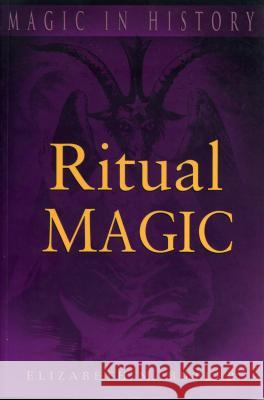Ritual Magic » książka
Ritual Magic
ISBN-13: 9780271018461 / Angielski / Miękka / 1998 / 336 str.
Occult knowledge and practice can be divided into three main branches: astrology, which aims to guide human fortune by means of foreknowledge; alchemy, which tries to secure power through the agency of the philosopher's stone; and ritual magic, which seeks to control the spirit world. In this classic book (first published in 1949), Elizabeth Butler explores ritual magic using a wide range of texts, from the pre-Christian rites of the Akkadians and Chaldeans to the Solomonic Clavicles of medieval Europe. She quotes extensively from these documents, providing the reader with an authentic sense of their richness and power.Butler also examines the careers of noted magicians of the fifteenth to nineteenth centuries, the history of ceremonial magic in England, the myth of Satanism, and the rituals involved in the Faustian pact with the devil. Ritual Magic is essential reading for all interested in the history of magic and in the way that magic traditions change as they move from culture to culture and from century to century.
Occult knowledge and practice can be divided into three main branches: astrology, which aims to guide human fortune by means of foreknowledge; alchemy, which tries to secure power through the agency of the philosophers stone; and ritual magic, which seeks to control the spirit world. In this classic book (first published in 1949), Elizabeth Butler explores ritual magic using a wide range of texts, from the pre-Christian rites of the Akkadians and Chaldeans to the Solomonic Clavicles of medieval Europe. She quotes extensively from these documents, providing the reader with an authentic sense of their richness and power.Butler also examines the careers of noted magicians of the fifteenth to nineteenth centuries, the history of ceremonial magic in England, the myth of Satanism, and the rituals involved in the Faustian pact with the devil. Ritual Magic is essential reading for all interested in the history of magic and in the way that magic traditions change as they move from culture to culture and from century to century.











